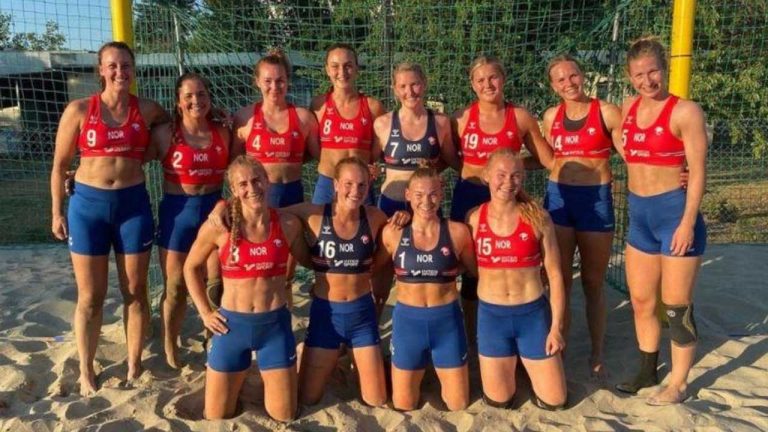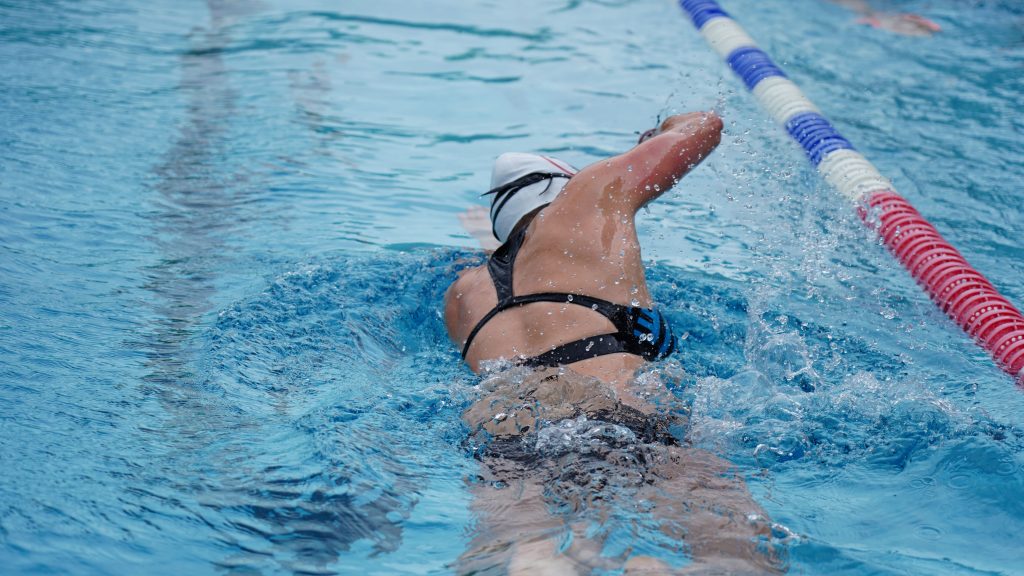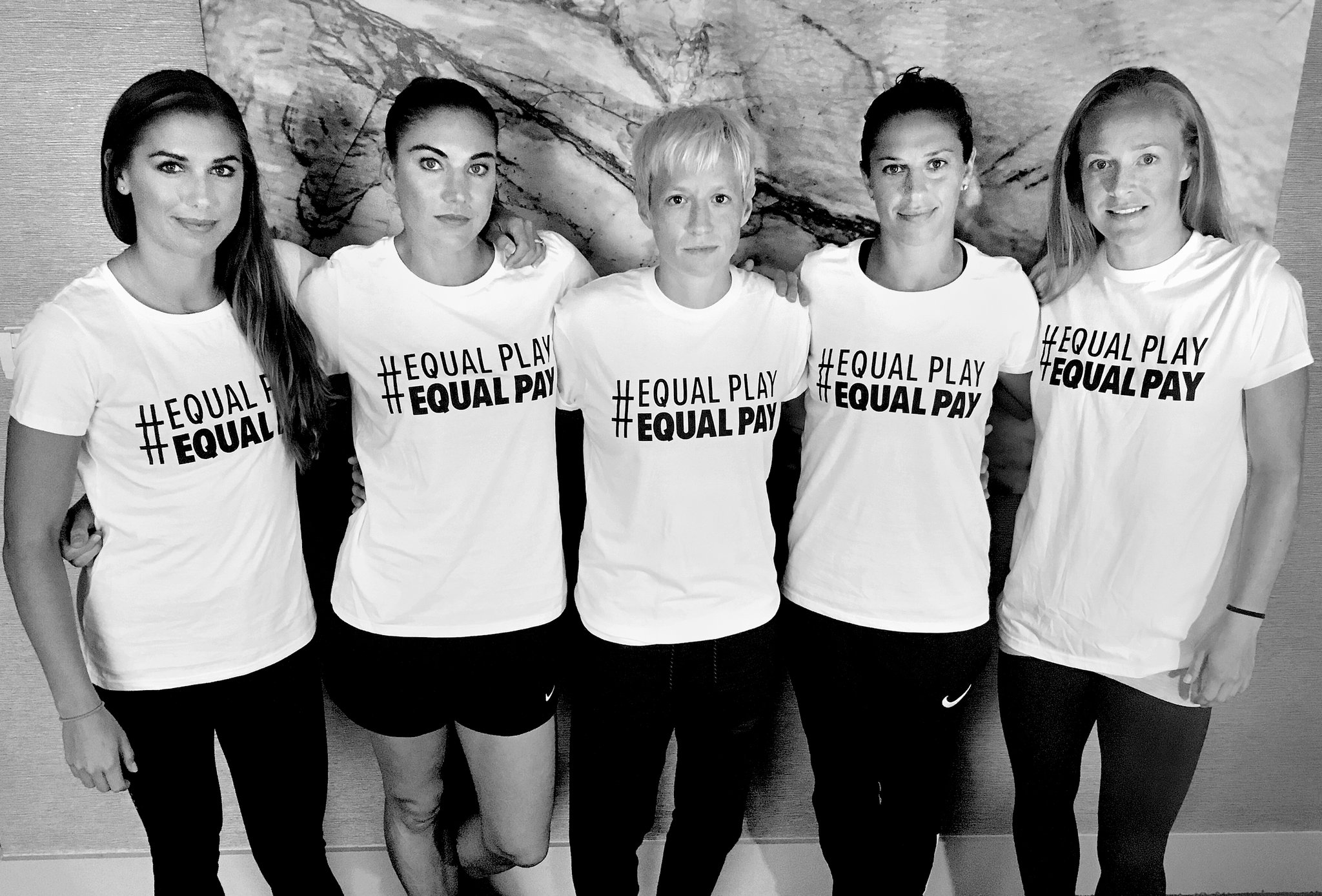Walking the Line of Inclusion and Fairness
Women have had to fight for their right to compete in sports since their inception and still have to prove their ability, value, and skill when it comes to athletics.
The U.S. women’s national soccer team filed a gender-discrimination lawsuit against the U.S. Soccer Federation for equal pay in 2019.

Megan Rapinoe/Twitter
The Norwegian handball team was fined $1700 (1500 Euros) for competing at the Euro 2021 Handball Tournament in shorts instead of the bikini bottoms that are required of them according to the International Handball Federation (IHF) regulations. What do the men wear?
Shorts and a tank top.

@norwaybeachhandballwomen/Instagram

@inaaletheia/Twitter
In the spring of 2021, the NCAA faced controversy as college athletes took to social media to compare the women’s and men’s weight rooms, food options, and swag bags during March Madness.
The most recent uproar in women’s sports, however, is the inclusion of transgender women competing in female categories.
Lia Thomas, a transgender woman who swims for University of Pennsylvania has been dominating Women’s records all season. She swam for the men’s team her first four years at UPenn, but was able to compete with the women after completing nearly three years of hormone suppressants; more than the one year that is required by the NCAA and Ivy League rules.

Lia Thomas
Claims of unfairness and cheating have been flooding the internet and news media. Cynthia Millen resigned from USA Swimming as an official stating in an interview with Fox News that “the fact is that swimming is a sport in which bodies compete against bodies. Identities do not compete against identities.” Many female swimmers, including Lia’s teammates, have also anonymously taken to right-wing media outlets to voice their concerns and disappointment with her inclusion on the women’s team, “When the whole team is together, we have to be like, ‘Oh my gosh, go Lia, that’s great, you’re amazing.’ It’s very fake,” one teammate said in a statement to OutKick.

Lia Thomas is not the first transgender female to compete in women’s sports and she certainly will not be the last. It seems, the only reason people are concerned with Thomas is because she’s winning.
There is currently little to no research on transgender athletes at the elite level, however, a
study was published in 2021 by Dr. Timothy Roberts that examined fitness test results of trans men and women who started gender reaffirming hormones while in the Air Force. The results showed that while trans women’s performance decreased from their pre-transition results, and the advantage in number of sit-ups and push-ups disappeared, they still held a 12% advantage over the average cis female when running 1.5 miles after 2 years of hormone suppression therapy.
On January 20th, 2022 the NCAA announced a change in their transgender policy that will differ by individual sport. Transgender athletes will now be required to submit sport-specific testosterone reports prior to championship competition.
Looking at the lack of research that has been done on transgender women in athletics, I can understand the initial reaction of cisgender women jumping to an argument of biological unfairness. What I cannot understand is the inability of others to consider the emotional aspect of not being accepted into a female or male division in sports, and being told the only category they fit into is “other”; something not dealt with by transgender men due to their transition of biologically inferior to superior and not the other way around. This is an experience that transgender women have to go through alone.
An issue like this is so complex because no one has ever dealt with it before. In a time when we are making so much progress it sometimes seems like we are stuck in the past, when differences were seen as bad or scary simply because they were unknown. It is in this situation where we come to a line of fairness and inclusion. No one should be discriminated against on the basis of sex, gender, or ability – but does the promise of a level playing field in athletics overrule the promise of non-discrimination? We also have to consider an even deeper issue, which is many people refuse to consider a transgender woman a “real” woman in the first place.
So what does the future of female sports look like? Scientists, psychologists, and professional athletes all have no idea. I don’t think any conclusion can come to this disagreement until transgender women are included as people, not just athletes.


